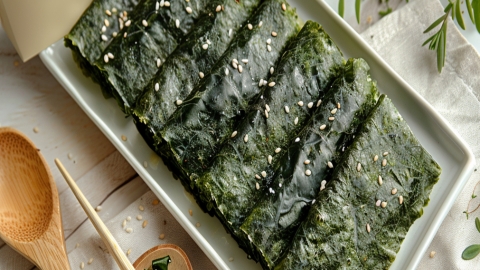Can milk and seaweed be eaten together?
Generally speaking, milk and seaweed can be consumed together, but moderation is advised. Detailed analysis is as follows:

Milk is rich in high-quality protein, calcium, phosphorus, vitamin A, vitamin D, and vitamin B2, among other nutrients. These components play important roles in maintaining bone health, enhancing immunity, and protecting vision. Seaweed contains abundant iodine, iron, vitamin A, B-complex vitamins, and dietary fiber. The iodine in seaweed helps prevent goiter, while its dietary fiber content aids intestinal motility and improves digestive function.
The calcium and protein in milk, when combined with the iodine and dietary fiber in seaweed, can help maintain overall health. Calcium in milk promotes bone growth and maintains bone density, while iodine in seaweed supports thyroid hormone synthesis and metabolism. However, moderation is important, as excessive milk consumption may lead to excessive fat intake, and overconsumption of seaweed may result in excessive iodine intake.
For individuals with specific physical conditions, such as those with lactose intolerance or those allergic to seaweed, attention should be paid to controlling intake or choosing suitable foods. When consuming them together, individuals can choose appropriate methods based on personal taste and preferences. It is recommended to maintain dietary diversity and balance in daily meals, avoiding excessive consumption of any single food or nutrient.





